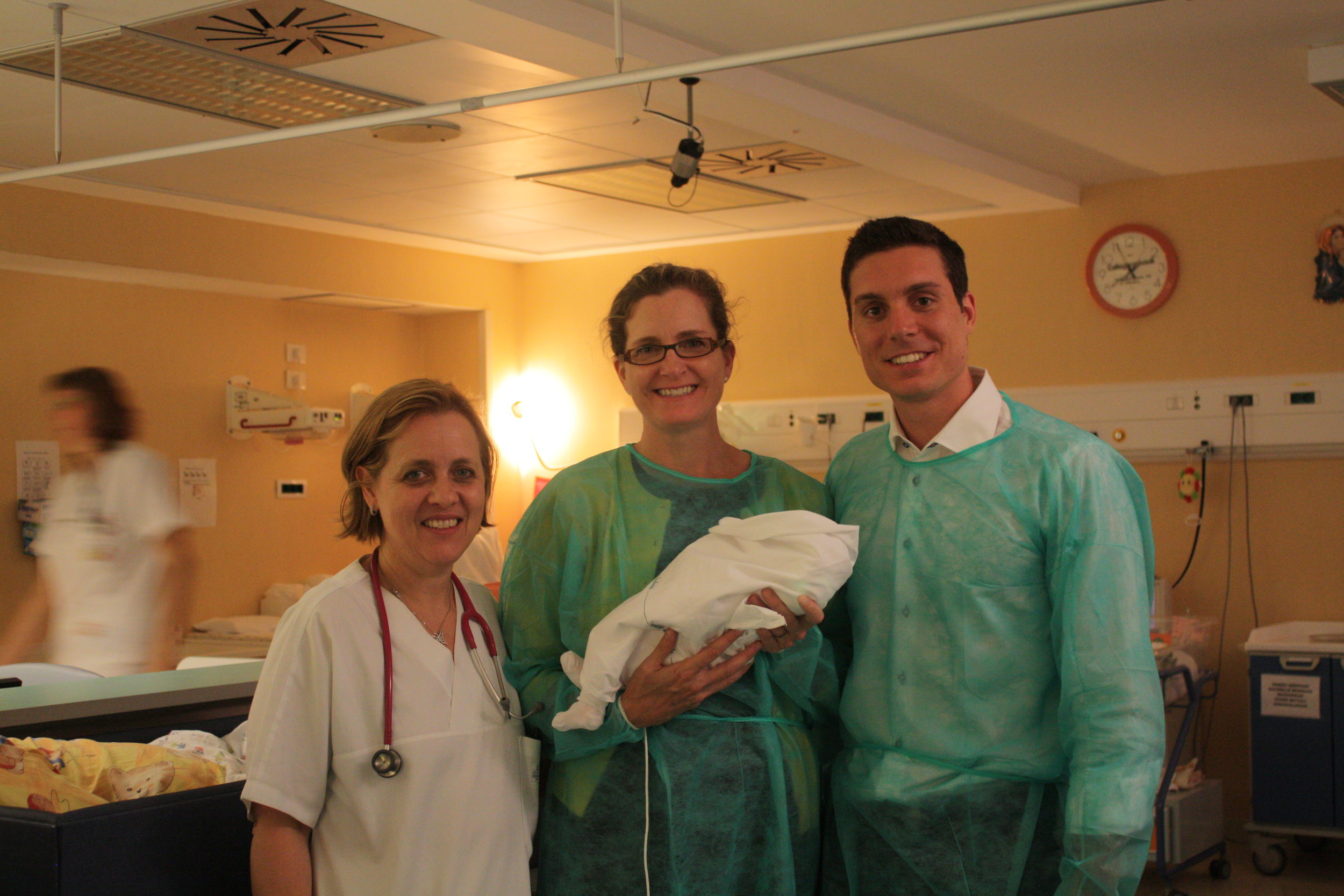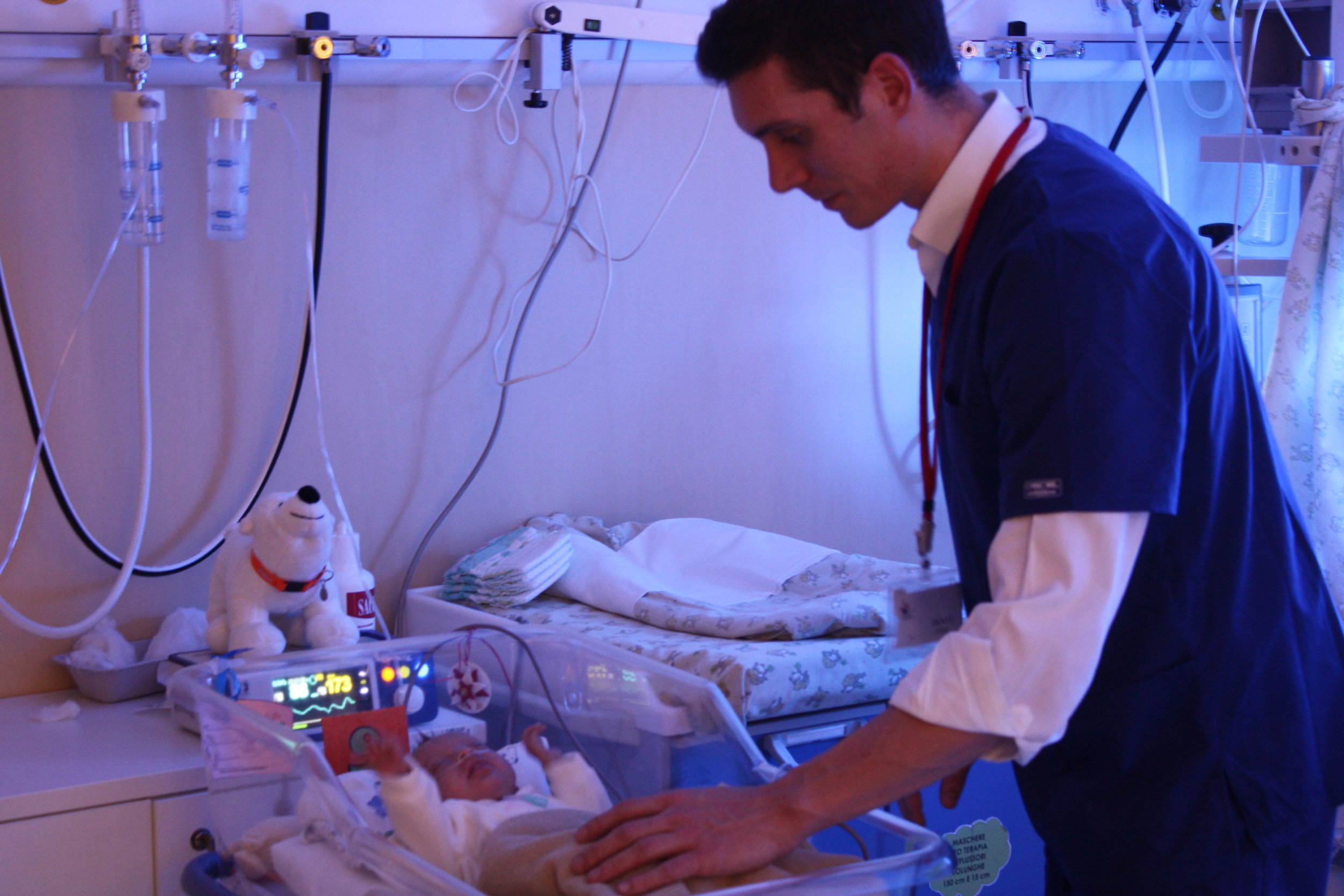
THE GENOTE BLOG
Inspiring, creating and living Health Music
Music’s Impact on the Brain: A Tool for Emotional and Cognitive Growth in Special Education
For students with special needs, music offers more than just enjoyment—it’s a powerful way to support both emotional and cognitive development. Research shows that music engages specific areas of the brain responsible for emotions and problem-solving, helping students manage feelings and focus on learning. In this blog, we’ll explore how music impacts the brain and offer insights into how you can use it effectively in your classroom.
How Music Activates the Brain
When students listen to music, their brains respond by activating key areas related to emotions and cognition:
Emotional Centers:
The amygdala and hippocampus play a role in processing emotions. These regions help students recognize and manage feelings evoked by music—whether it’s joy, calm, or sadness.Cognitive Areas:
The frontal cortex is stimulated during music processing, supporting attention, memory, and problem-solving skills. This is why music can help students stay focused and engaged with learning activities.
Positive and Negative Emotions in the Brain
Different types of music activate distinct parts of the brain:
Positive Emotions: Music that evokes happiness, like upbeat or familiar songs, activates areas in the left hemisphere of the brain. These regions are associated with motivation, creativity, and social interaction.
Negative Emotions: Music with a slower tempo or minor key, like sad or tense music, stimulates areas in the right hemisphere, including the amygdala, which processes emotions like fear or sadness (Trost et al., 2012).
Why This Matters in Special Education
Understanding how music affects the brain can help teachers use it as a tool for emotional regulation. For students who struggle with managing feelings, music can activate pathways in the brain that encourage calm and focus.
Regulating Emotions: Playing calming music during stressful moments can soothe anxious students. Similarly, cheerful music can lift students' moods during low-energy times.
Improving Focus and Problem-Solving: The activation of cognitive areas means that music can enhance students' ability to stay on task and solve problems. Integrating background music during independent work time can help students with attention challenges.
Practical Ways to Use Music in the Classroom
Here are some simple ways to integrate music into your lessons to support emotional and cognitive development:
Create a “Calm Down” Playlist
Use soft, instrumental music to help students self-regulate during transitions or after moments of frustration.Boost Mood with Upbeat Songs
Play lively music at the start of the day or before a lesson to energize students and set a positive tone.Incorporate Music into Problem-Solving Activities
Background music can enhance focus during tasks that require concentration, like puzzles or independent work.Use Emotional Check-In Songs
Start the day with a song that encourages students to reflect on how they feel, helping them connect emotions to musical cues.
Conclusion
Music is a powerful tool for teachers working with students with special needs. By engaging areas of the brain responsible for emotions and cognition, music can help students regulate feelings, improve focus, and enhance problem-solving. With thoughtful integration, you can create a classroom environment where students feel supported emotionally and academically.
Next time your students are feeling overwhelmed or distracted, try playing a song—you might be surprised by the positive impact it has!
References
Trost, W., Ethofer, T., Zentner, M., & Vuilleumier, P. (2012). Mapping aesthetic musical emotions in the brain. Cerebral Cortex, 22(12), 2769–2783.
MUSIC, TERM AND PREMATURE BABIES
The beginning of life is often a very stressful experience, even for otherwise healthy babies. Prior to birth, all the infant knows is the warm, safe, and quiet surroundings of being in the womb. The beginning of life brings cold, danger, and noise. All of the noise, particularly the hospital environment, can be detrimental to the newborn receiving the sleep it needs.
Specifically referring to studies conducted in Neonatal Intensive Care Units, we know the importance of sound.
Ås reported by Rich Haridy in New Atlas, on May 29th, 2019, an important study at the University of Geneva, shows that music can help build the brains of premature babies.
At Genote, Health Music is a valuable resource for reducing stress and increasing stability in newborn children. The existing research did not make clear what types of music would be best for this purpose.
Sixteen newborns were exposed to the Genote Sleep Music Protocol for thirty minutes twice per day. Their heart rate, blood oxygenation, pain scale, and behavioral states were measured within a half hour of exposure to the music.
The majority of the newborns showed improvement in their capacity to self-soothe and transition to a more relaxed state. Their sleeping patterns also improved. The positive impact of structured music listening on healthy newborns indicates the need for further study on the impact structured music could have on sick newborns.
Hear some of the new music used at the University of Geneva
See the video from Venice NICU
3 Powerful Ways Health Music Can Enhance Athletic Performance
What if I told you that listening to expertly selected music compositions, in specific moments of your physical exercise could improve your health, recovery and physical results?
What if I told you that listening to expertly selected music compositions, in specific moments of your physical exercise could improve your health, recovery and physical results?
Music is made up of both many individual components and, especially,relationships between those components. Like in chemistry, where different components create chemical reactions, in music, different elements, such as tempo, rhythm, instrumentation, can trigger different reactions from people like modify breathing patterns, generate positive emotions and many other effects on psychophysiological parameters.
I want to share with you some tips on how integrating Health Music in your daily physical exercise routine will improve your health and recovery. Whether you are an amateur or a professional, you can witness real change. Each of the therapeutic areas described below can be found in Genote with a variety of Health Music protocols to tackle and improve your training and personal health.
We can summarize that major psychophysiological mechanisms, dedicated to increasing physical performance are linked to music’s ability to regulate arousal, and direct and increase our capacity to focus while increasing positive emotional responses and feelings.
Stress Reduction
Practice, strenuous training, and physical activity are often associated with physical and mental stress related to fatigue, change of habits or pressure by competitions and required improvement. However, even if there is a positive side of stress, like cold eustress that allows us to be more reactive and ready to perform, having high levels of continued stress might cause serious health issues. Listening to music can decrease stress and anxiety, cortisol levels, heart rate and blood pressure in people of all ages. Genote Health Music is the largest collection of therapeutic sound and music protocols made available for health, and it is so powerful in reducing stress and anxiety that is currently incorporated both in medical interventions and mental health institutions.
Sleep and Recovery
Recovery is one of the basic principles of training methodology (Rushall & Pyke, 1990). Athletes work hard to prepare and perform successfully. Unfortunately, many ignore or forget the performance benefits and the injury protection derived by including recovery within their daily training programs. Listening to music after intensive exercise has been proven to decrease the time needed to recover (Eliakim et al., 2013). Additionally, the College of Music and Dance in Philadelphia discovered how music was found to decrease anxiety related to illness and medical procedures by increasing the speed and the quality of physical recovery.
Supercompensation theory, showing the role of recovery in athletic performance.
Focus and Motivation
Because music stimulates the reward system, changes mood and enhances focus, it is no surprise that it has been used to attend important competitions and performances. In a study conducted by Dr. Karageorghis and Priest a,b, in 2012 they showed how music lead a range of positive effects, in lowering the perception fatigue, increasing motivation and enhancing perceived energy levels of athletes during physical exercise. Studies also show how music can increase visual perception and visual attention in patients with damage in areas related to perception.
The Yerkes–Dodson law originally developed by psychologist Robert M. Yerkes and John Dillingham Dodson in 1908, dictates that performance increases with physiological or mental arousal, but only up to a point.
Training is a matter of balance, motivation and consistency. It is important to keep in mind the direct effect of your routine in the efforts of enhancing your athletic performance. Recovery is a key aspect in building athletic performance. Optimized recovery allows high intensity training and better focus in the execution.
Music Helps Children During Medical Procedures
Listening to music reduced pain and anxiety, improving medical procedures on children.
Hospitals and dental clinics can terrify children – and for good reason. Pain, discomfort, and anxiety accompany children’s medical experience, but what if their pain could be reduced with music? A study by Dr.Tanja Bekhuis discovered music could make all the difference for children.
Dr. Tanja Bekhuis studied 19 random trials experimenting with music’s effect on children undergoing medical procedures, and her study of all of these trials in context found remarkable results. Listening to music reduced pain and anxiety, improving medical procedures on children in significant ways such as:
- Reducing pain and makes children more manageable and happy
- Decreasing procedure time and length of discomfort
- Reducing need for pain controlling drugs
This study opens up doors for further music exploration. It may be the music was only a distraction, a loud noise to block out strange auditory stimuli, or entertainment to pass the time. But research has verified that music may be more than that. In fact, music may even be fine tuned in order to help children cope with specific symptoms that come with pain and anxiety.
Music’s potential to make a profound impact on the medical community requires strict attention. That’s why music and medicine companies like Genote™ thoroughly study practical musical application to help individuals around the world better heal, sleep, and improve daily life.
We thank the wonderful scientists who conducted all the extensive studies to give us these valuable insights. These findings lay the perfect foundation upon which to build a new generation of music and medicine.
Music can reduce pain – music can do much more.
Learn more about the benefits of music at www.genotelab.com
The Importance of Early Auditory Experiences in Premature Infants - A Mom Testimony
My twins are almost 2 1/2 years old and have been listening to their Genote sound machine since they were infants. They initially spent 31 (my daughter) and 35 days (my son) in the NICU.
“A premature baby’s main challenges are represented by the immaturity of the infant that is thrown from the optimal environment of the mother uterus into a very uncomfortable place with sounds, noises, lights and painful procedures that prevent her recuperating and developing fundamental competencies for grow and health. The baby knows how to communicate and tell us many things, but she needs somebody to listen to her and look at her. (1)”
Preterm birth, is the birth of a baby at fewer than 37 weeks gestational age. It is a common condition that affected about 1 out of 10 babies (9.6%) in the US during 2016 (2) and is the most common cause of death among infants worldwide.
Because of the gravity of this situation and the possibilities that exposure to sound offers to preterm babies and their parents, Genote invested many years in research and clinical experiences to develop a method based on structured listening protocols designed to help the baby’s neurological development, improve sleep, pain management, and recovery. Optimized for the clinical setting as well as the home, the Genote system can be implemented by families or medical personnel during and after hospitalization.
Preterm babies that spend their first weeks or months in the neonatal intensive care unit (NICU) are deprived of the entire range of sounds that would come from their mothers. These absent sounds are mainly sounds they would be hearing while in utero; low-frequency bands of the mother’s voice and rhythmic bits from the mother’s heartbeat.
Countless studies reviewed by the Genote scientific team show the importance to protect the baby from a wide array of noises (including harmful white noise) while stimulating the auditory system with structured sounds and melodies that allow for proper stimulation, development of the auditory brain, speech and language acquisition. (3-5)
In our many stories of supporting and informing families struggling with this problem, we met many great mothers and strong babies that teaches us not only about the meaning of life but also of their great resiliency and the importance of the human interaction for their growth and development. Lately, we met Diana from Los Angeles, who decided to try Genote on her two premature babies. This is her testimony.
“My twins are almost 2 1/2 years old and have been listening to their Genote sound machine since they were infants. They initially spent 31 (my daughter) and 35 days (my son) in the NICU. The music has been so soothing to them and I believe it helps them understand melody that much more in their music class and in our life. I would highly recommend it to all newborns and napping little ones over white noise.
”
The Great Balancing Power of Music
When individuals feel down, they naturally turn to music for consolation. This published study may change the way you use music to regulate your mood.
When individuals feel down, they naturally turn to music for consolation. They attempt to drive away their negative feelings with songs expressing their personal mood and situation. But sad music doesn’t necessarily transform a sad person; rather, it can reinforce those emotions and skew perspective through emotional connections. Seeking to understand how music influences emotions, Frontiers in Human Neuroscience published a study that may change the way you use music to regulate your mood.
The medial prefrontal cortex (mPFC) is the portion of the brain associated with regulating emotions. Scientists at Aalto University monitored brain activity in the mPFC to determine the effects of different kinds of music on males and females. The study found when women listened to music as a diversion or distraction from negative feelings there was increased emotional regulation. Conversely, when men used music to reinforce negative emotions, their emotional regulation decreased, suggesting that sad music can help propel a person into a downward emotional spiral, or at least be ineffective and brightening someone’s mood.
In a nutshell, the study suggests that people are using music every day to combat or compliment their emotions, but improper use of music may only amplify their emotional concerns.
Aalto University’s study reinforces the notion that music has a profound influence on individuals’ lives. Music can be extremely beneficial when used in the correct way, but incorrect use can have adverse effects. Understanding music’s potential is just the beginning. That is the community of music and medicine is diving deeper into previously neglected areas of music research to discover how best to utilize music’s valuable capabilities.
With deeper knowledge and understanding of music’s influence on our lives, we can regulate our emotions with cognitive control. To learn more about extensive Genote™ Health Music discoveries, visit http://www.genotelab.com/.
Music for Depression
"6 months have passed by and the program has progressed past it’s first stages; For me, and now many others, every week I spend in Genote has been more than beneficial." - Sam
Since 2003, Genote has been focused on developing Health Music protocols for the mental health arena. Initially, we wanted a chance to assist the therapeutic process by creating a mentorship-like relationship between a music experience and a patient. After 2012, Genote identified a few pivotal, working elements in the therapeutic cycle: problems such as insomnia, depression, anxiety, and lack of concentration, rigid thinking and distress tolerance. These mental health issues are now considered crucial in building healthy lifestyles, and professionals seek to offer appropriate developmental tools to people of all ages.
It is rewarding is to see how Health Music protocols are being applied for adolescents at risk, in dire conditions and even desperate stages of their lives.
Based on the Music Education Therapy method (MET), through Genote technology, we created a Music Mentorship Program to support and increase therapeutic objectives, educational experiences and health targets. We combined Genote Health Music (for Sleep, Anxiety, Focus, Rigid Thinking and Distress Tolerance) with group sessions called “Sundown”. The Music Mentorship program helps young people in clinical environments and diverse clinical settings while they struggle with different aspects of mental health.
Clinical settings, even lock-down facilities, require a tailored, differentiated implementation according to each institution’s specific goals, environment and workload.
Genote has been successfully applied and evaluated in NICUs, professional sport teams, wellness programs, and alzheimer treatment clinics. We’d like to take this opportunity to share some first hand accounts of how individuals have found personal benefits through Genote Health Music.
We feel fortunate to get the chance to help youth in Residential Treatment Centers. One of your partner organizations, Elevations RTC, has implemented a variety of Genote programs and tackled different psychological and mental health issues. While working with their resident therapists and psychologists to equip students with personalized access to the Genote Library, students and staff participate in individual sessions, group sessions and other initiatives. More and more students are using the program as they witness positive experiences from their peers. The students decide to sign up, experience Genote, and move forward all on their own initiative.
Here is one student’s description of his experience.
“The Genote Project that I have experienced began as a trial project with 5 other kids in the back of a library listening to and discussing classical music. Since then, 6 months have passed by and the program has progressed past it’s first stages; For me, and now many others, every week I spend in Genote has been more than beneficial. The relationship we have developed with the Genote Team has become therapeutic and deep. The trust that has been the foundation of their work has allowed the bond we have created to flourish. The wisdom they share and the time they have spent has not only improved our knowledge and understanding of music, but our knowledge and understanding of healthy living. I’m thankful for what they have done and excited to see where their program goes.”
Thinking Aloud with Classical89
When Classical89 asked if they could feature us in their show, Thinking Aloud, we were excited and a little hesitant because, frankly, being interviewed on the radio can be really scary.
Fortunately, between the three of us, we could help each other out. We think the program turned out pretty well. Give it a listen!
When Classical89 asked if they could feature us in their show, Thinking Aloud, we were excited and a little hesitant because, frankly, being interviewed on the radio can be really scary.
Fortunately, between the three of us, we could help each other out. We think the program turned out pretty well. Give it a listen.
We were particularly delighted by our experience with Marcus Smith, the host of Thinking Aloud, because he grasped on to what we were trying to communicate very quickly. We could tell he lived for music, and was a strong believer in the power it might have on our lives.
When we talk to people about the Genote™ method, including our research studies, there is always a distinguishing moment recognizable on their faces when things start to click. It is one of the best parts of spreading the news: watching people’s cautious optimism about music’s effect on the mind and body be solidified into something a little more concrete. Usually when a person realizes the gravity of what we are saying, the eyes expand ever so slightly and the mouth opens just a little wider. For us, seeing the Genote™ moment happen to others is so resonant because it reminds us of how the project started in the first place.
Most of all, we were grateful to Marcus because he understood our big picture message: Genote™ music is a scientific, research-validated, quantified approach to music and medicine.
After the interview, we stayed for quite some time chatting off the air, talking about important music moments in each of our lives. He even showed us the impressive Classical89 library, an experience we won’t soon forget.
If you haven’t had a chance to check out Thinking Aloud, go over to their website and give the show a listen. It is definitely worth the time.
To learn more about our science, method and music, visit http://www.genotelab.com



























